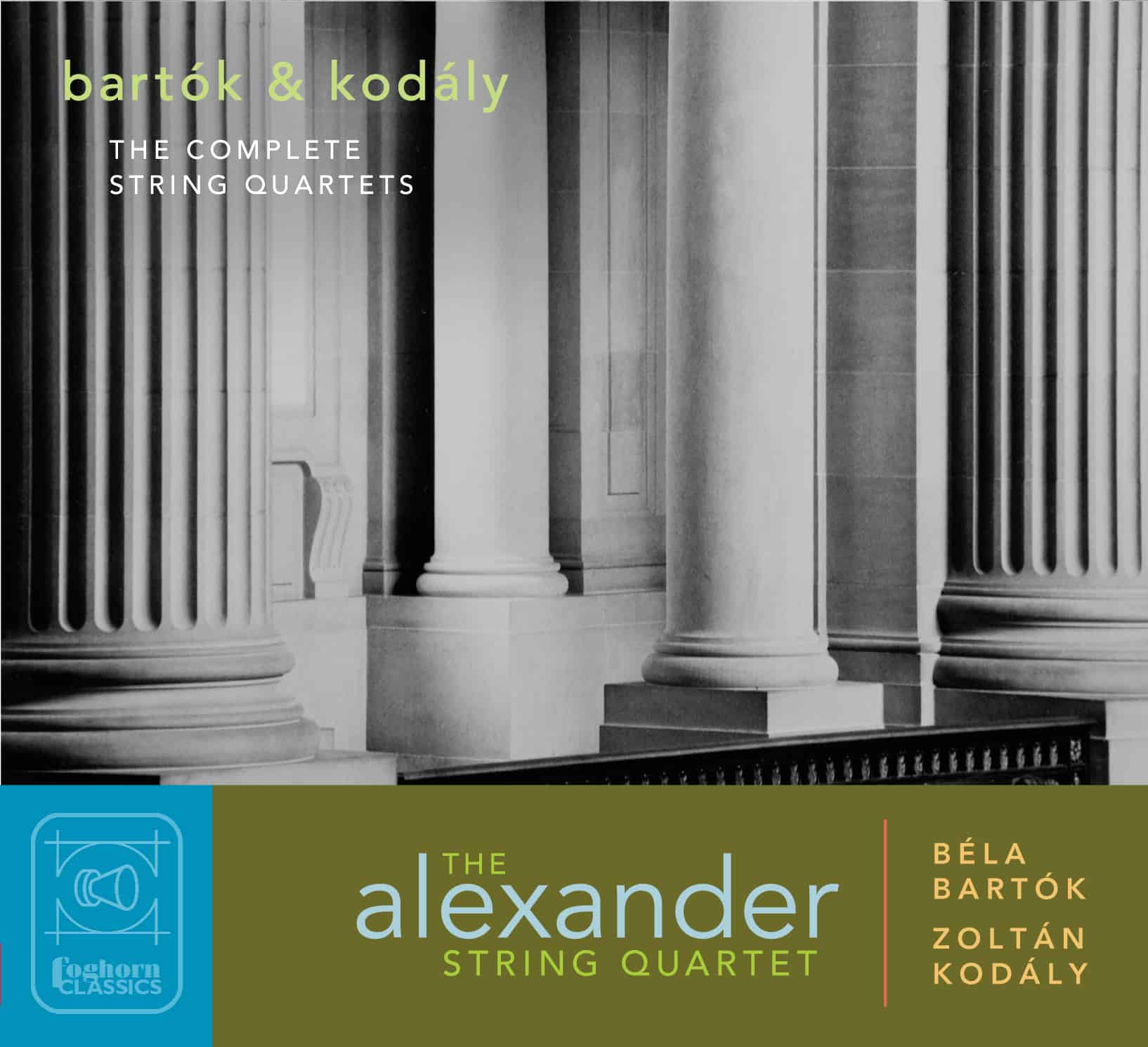Bartók & Kodály
 The Alexander String Quartet brings to life the complete quartets of Béla Bartók and Zoltán Kodály in this new 3-CD release. Contemporaries and fellow ethnomusicologist-composers, Bartók and Kodály wrote some of the most beautiful, beguiling, and ultimately influential string quartet music of the 20th century. Producer and multiple Grammy® winner Judith Sherman captured the recordings of these eight quartets under superb conditions, performed on the Ellen M. Egger Quartet of instruments by luthier Francis Kuttner.
The Alexander String Quartet brings to life the complete quartets of Béla Bartók and Zoltán Kodály in this new 3-CD release. Contemporaries and fellow ethnomusicologist-composers, Bartók and Kodály wrote some of the most beautiful, beguiling, and ultimately influential string quartet music of the 20th century. Producer and multiple Grammy® winner Judith Sherman captured the recordings of these eight quartets under superb conditions, performed on the Ellen M. Egger Quartet of instruments by luthier Francis Kuttner.
“…the Alexander Quartet gave the Bartók a restrained and poised, even introverted, performance, without in any way neglecting the work’s varying moods. The march had the appropriate swagger, the Burletta (burlesque) a dry wit and a hint of the grotesque. The Mesto introductions provide each member of the quartet with a solo, and each played his beautifully. A tip of the hat to Zakarias Grafilo and Frederick Lifsitz, violins, Paul Yarbrough, viola, and Sandy Wilson, cello, for their lovely playing in this and in the Britten.” — Lisa Hirsch, San Francisco Classical Voice
In 1909 four young Hungarian musicians — violinists Imre Waldbauer and János Temesváry, violist Antal Molnár, and cellist Jenö Kerpely — formed a string quartet dedicated to the cause of new music. At a time when musical life in Hungary was generally moribund, the Waldbauer-Kerpely Quartet gave the Hungarian premiere of Debussy’s String Quartet in 1910 (with Debussy in attendance) and performed quartets by Schoenberg and other contemporary composers. But the young quartet had been formed specifically to advance to the cause of Hungarian music. Its members were close friends with two young professors at the Budapest Academy of Music, Béla Bartók and Zoltán Kodály, and for the quartet’s very first concerts — in March 1910 — it played two “composer evenings.” Each was devoted to the music of one of those composers, and these two concerts would be optimistically hailed as “the double birthday of modern Hungarian music.” On March 17, the Kodály evening brought the premiere of his String Quartet No. 1, Cello Sonata, and various piano pieces. Two days later, on March 19, the Bartók evening saw the premiere of his String Quartet No. 1, short works for the piano performed by the composer, and the Budapest premiere of his Piano Quintet. It is a mark of the dedication of the members of the Waldbauer-Kerpely Quartet that they had nearly a hundred rehearsals before they felt they were ready to give those first concerts, and over the next year the ensemble performed these two quartets throughout Europe, including performances in Berlin, Vienna, and Paris. Those pioneering performances by the Waldbauer-Kerpely Quartet established a precedent that would be sustained across the rest of the century. From the first moment, Kodály and particularly Bartók enjoyed the support of what would prove to be a succession of many passionate advocates, dedicated performers who would champion this music at a time when critics and audiences found it alien and threatening.
